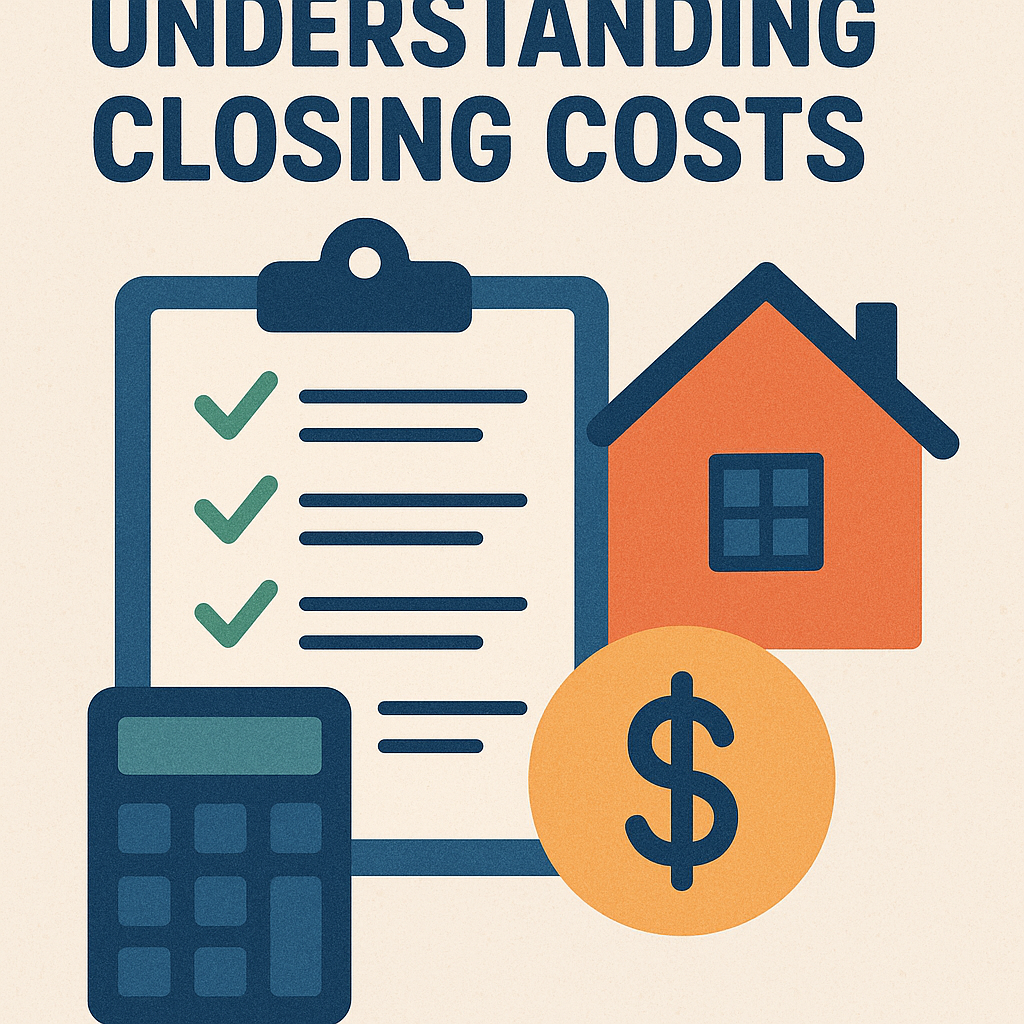Published May 19, 2025
Understanding Closing Costs

Understanding Closing Costs
For many homebuyers, the excitement of purchasing a home can be slightly dampened by one dreaded topic – closing costs. These fees, often confusing and unexpected, are an important part of the home-buying process. But don’t worry; with a little knowledge, you can approach your closing day with confidence and clarity.
This guide will help you understand what closing costs are, what they include, and how you can plan for them effectively.
What Are Closing Costs?
Closing costs are the fees and expenses you pay when finalizing the purchase of a home. These costs cover everything from processing your mortgage, verifying documents, and legal fees, to taxes and other related expenses. They are paid at the closing of a real estate transaction, which is the final step in transferring ownership from the seller to the buyer.
Typically, closing costs range between 2% and 5% of the home’s purchase price. For example, if you’re buying a $300,000 home, you might expect closing costs to be anywhere from $6,000 to $15,000. These costs vary depending on factors like the property’s location, loan type, and lender requirements.
What Is Included in Closing Costs?
Closing costs include a variety of fees and expenses that your lender, local government, and other entities charge for their services. Here’s a breakdown of the most common costs:
1. Loan-Related Fees
- Application Fee: This covers the cost of processing your loan application.
- Loan Origination Fee: This is charged by the lender for creating and processing the loan.
- Credit Report Fee: A small fee to review your credit report as part of the loan approval process.
2. Inspection and Appraisal Costs
- Home Inspection Fee: Ensures the property is structurally sound and free of major issues.
- Appraisal Fee: Verifies the market value of the home to ensure it aligns with the loan amount.
3. Insurance Requirements
- Homeowners Insurance: Proof of this insurance is typically required before closing.
- Private Mortgage Insurance (PMI): If your down payment is less than 20%, your lender may require PMI to protect their investment.
4. Government-Related Costs
- Property Taxes: Often prorated, meaning you cover the seller's share of taxes for the period you’ll own the home.
- Recording Fees: Charged by your local government to record the sale.
5. Title and Legal Fees
- Title Insurance: Protects you from potential disputes over the property’s ownership.
- Attorney Fees: If required, these cover the legal review of closing documents.
6. Prepaid Costs
- Escrow Deposit: Covers property taxes and insurance that will be held in escrow.
- Prepaid Interest: Pays for interest that accumulates before your first mortgage payment.
Who Pays Closing Costs?
Both buyers and sellers share closing costs, but buyers usually bear the majority of the fees. Sellers typically cover costs like real estate agent commissions and certain taxes, while buyers are responsible for the fees related to their mortgage and property ownership.
Occasionally, buyers can negotiate with sellers to cover some of the closing costs, known as "seller concessions," as part of the purchase agreement.
How Can You Prepare for Closing Costs?
Understanding and preparing for closing costs can make a huge difference in your home-buying experience. Here are some tips to help you plan ahead:
- Get a Loan Estimate: When you apply for a mortgage, your lender is required to provide a detailed loan estimate that includes the expected closing costs. This allows you to budget accordingly.
- Shop Around for Services: Some fees, like title services or home inspections, can be shopped for. Compare quotes to ensure you’re getting the best deal.
- Set Aside an Emergency Fund: To avoid surprises, set aside extra funds beyond your closing cost estimate for unexpected expenses.
- Discuss with Your Lender: Some lenders offer no-closing-cost options, where the fees are rolled into your mortgage. While this might be an attractive option upfront, it’s important to evaluate the long-term impact on your loan.
The Bottom Line
Closing costs are a necessary part of any real estate transaction, but understanding them can make the process smoother and less stressful. Knowing what to expect, budgeting in advance, and asking the right questions can save you from unwelcome surprises on closing day.
As you prepare for your next big move, take the time to explore your options and understand all the costs involved. With the right planning, you’ll walk into your new home confidently, knowing you’ve managed your finances wisely.
Have questions about closing costs or the home-buying process? Leave your thoughts in the comments, and let's discuss!





